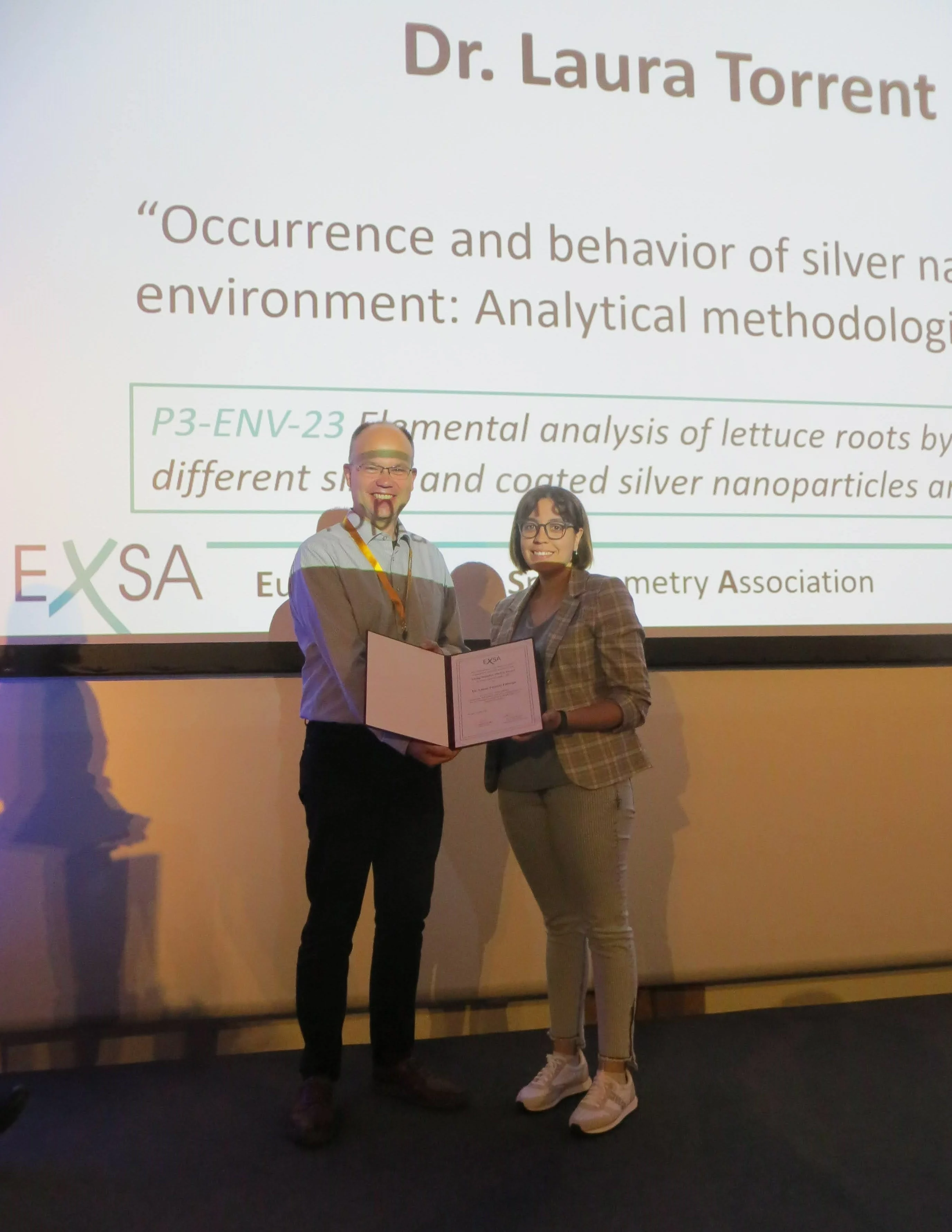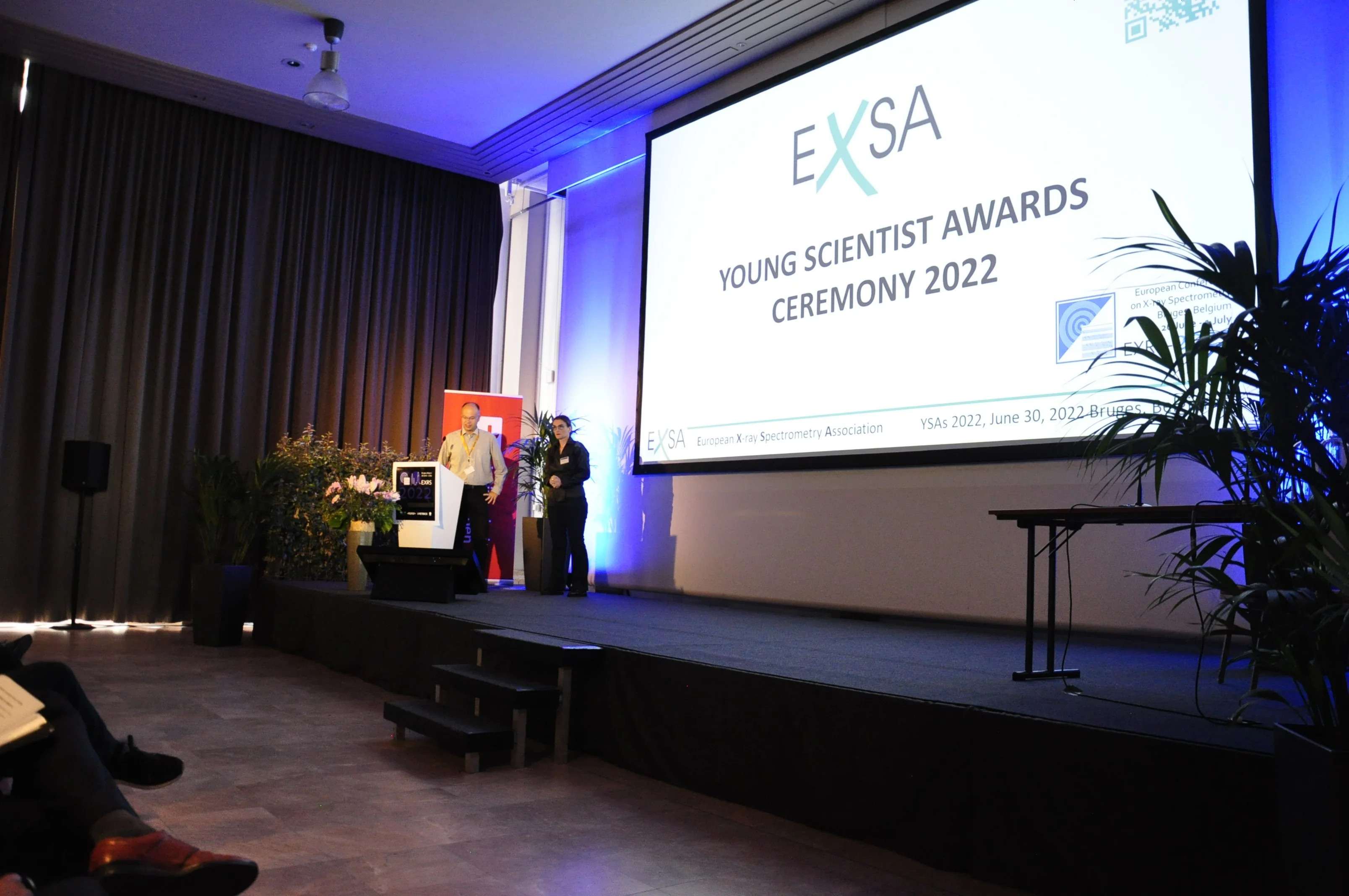Dr. Laura Torrent, Postdoc at the laboratory for bioenergy and catalysis, was awarded the European X-ray Spectrometry Association (EXSA) Young Scientist Award 2022 at the PhD Level for her Doctoral Thesis entitled "Occurrence and behavior of silver nanoparticles in the environment: Analytical methodologies and laboratory studies". She worked on her doctoral thesis in Spain at the University of Girona, prior to coming to PSI, where she continues to develop analytical methodologies for the characterization of nanoparticles in the frame of the SNF project NanoWaste and the project SynFuels.
The European X-ray Spectrometry Association (EXSA) was founded in 2004 with the aim to promote scientific innovation and cooperation of X-ray spectroscopists and analysts within Europe. EXSA brings together academia and industry, and young and experienced scientists. The EXSA Young Scientist Awards (one at the PhD, one at the early career level) are awarded every two years to promising young researchers for their remarkable contributions in the field of X-ray spectroscopy methods and/or their applications.
In her thesis, Laura Torrent’s ultimate goal was to understand and evaluate the impact of silver nanoparticles on the environment. For this, she analyzed different types of environmental samples that she added or exposed to different types of nanoparticles, and worked on developing the techniques required to properly analyze these samples. More precisely, she studied the mobility and bioavailability of different sized and coated silver nanoparticles in aquatic and terrestrial environments, and their accumulation, biotransformation and toxicity in edible plants. This is highly relevant as silver nanoparticles can be found in various everyday consumer products such as shampoos, toothpaste, and even socks - due to their disinfecting/antibacterial properties, meaning they will eventually end up in wastewater treatment plants, where they cannot be removed completely and are therefore released into the environment. The potential impacts that this could have on the environment makes them worth investigating closer.
In doing so, the behavior of nanoparticles was studied in different environmental matrices like soils, plants, and water. Different types of soils from contrasting regions of Catalonia were utilized and mixed with different types of silver nanoparticle suspensions that contained nanoparticles of different sizes and coatings, to examine whether and how particles are adsorbed in the soils, and if they do remain in the soil. Laura Torrent then developed new analytical approaches or used the existing analytical methodologies to perform these studies, among them microwave digestion, cloud point extraction (CPE), inductively coupled plasma mass spectrometry (ICP-MS), single particle ICP-MS, inductively coupled plasma optical emission spectroscopy (ICP-OES) and total reflection X-ray fluorescence spectrometry (TXRF)).
Further, she investigated what happens when wastewater or biosolids containing such particles end up on a field. In order to approach this question, lettuce were exposed to the nanoparticles, as lettuce are relatively easy to cultivate. Would the particles be transferred inside the plant and absorbed by roots? And are they inducing toxicity into the lettuce, which can be seen by the plant dying? She observed that in some cases they were indeed toxic, and found a strong correlation with particle size. Further, she found that when the plant was exposed to dissolved silver this induced more toxicity than when it was exposed to silver in nanoparticulate form.
Congratulations Laura on this great achievement!
Text: Michelle Kalousek
Contact
Dr. Laura Torrent
Postdoc at the laboratory for bioenergy and catalysis
Paul Scherrer Institute
Forschungsstrasse 111
5232 Villigen PSI
Switzerland
Telephone: +41 56 310 26 26
Email: laura.torrent@psi.ch
Find the original publication here: https://www.mdpi.com/2079-4991/11/10/2626/htm



